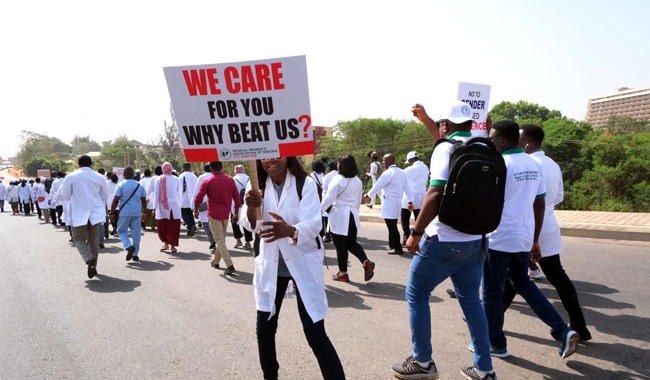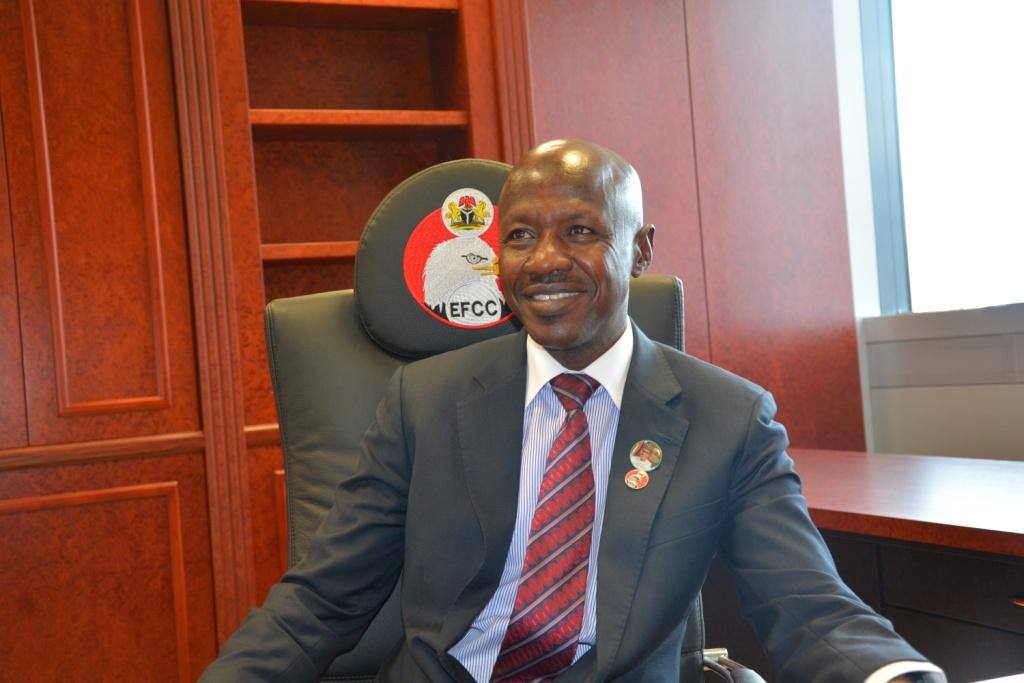BY NZUBECHUKWU OGAMBA
Healthcare workers in Nigeria battle many challenges ranging from poor working environments and unavailability of needed infrastructure to poor remuneration.
Yet, they have demonstrated immense resilience in delivering healthcare to Nigerians despite these challenges, however, the recent incessant assault meted out on them in the course of delivering care leaves a lot to be worried about.
According to the Occupational Safety and Health Administration (OSHA), workplace violence is any act or threat of physical violence, harassment, intimidation, or other threatening disruptive behaviour that occurs at work.
Advertisement
The violence experienced by many health workers in Nigeria ranges from verbal abuse, threats, and physical assault resulting in injury and debilitation and in extreme cases, death.
The WHO reports that up to 62% of healthcare workers are affected by one form of violence or another at some point and no category of the healthcare workforce is spared.
It is also important to note that most of this violence is perpetuated by patient relatives, friends and in some cases, the patients themselves.
Advertisement
In Delta state, for example, there have been reported incidents of up to four attacks on medical doctors by patient relatives within the space of three months this year, including one death from a gunshot.
PERPETUATING FACTORS
There are various factors peculiar to Nigeria that can be identified as major contributors to the trend.
The jungle justice culture: There is a general leaning of Nigerians towards jungle justice in various situations where they feel offended. Patient relatives have been recorded attacking health workers following the demise of a patient regardless of the circumstances surrounding it. The blame is often pushed to the health workers who can be attacked whether or not they did their jobs well.
Advertisement
Poor working infrastructure: Many health workers recall the reason for being attacked verbally or physically being the unavailability of equipment or materials to treat patients. This is oftentimes not understood by the patients or their relatives who see it as incompetence on the part of the personnel providing care and therefore blame the health worker for poor care or the death of a relative.
Poor staffing: There is a poor ratio of health workers to patients in Nigeria, according to the Nigerian Medical Association, for example, the doctor-patient ratio stands at 1 doctor:10,000 patients. Every day in clinics, emergency rooms, theatres, labs etc., health workers are under immense pressure to deliver uncompromising care to patients and properly manage their expectations and that of their relatives.
In certain situations where they may not be able to meet up, they are left vulnerable to assault from disgruntled patients or their relatives.
Impact
Advertisement
Being attacked in one’s workplace is an undignifying and demoralising experience and nobody should be made to go through such.
Feeling unsafe in one’s work environment limits productivity and has far-reaching consequences, especially in an environment like a health facility where utmost attention and psychological balance are required for optimal delivery of services.
Advertisement
Recommendations
The WHO recommends the following to mitigate the trend:
Advertisement
- Proper recognition and recording of violent incidents to identify risk and forestall recurrence
- Improved work organisation which entails a general improvement of working conditions and infrastructure, appropriate staffing, provision of adequate security and establishing a protocol.
- Adequate security measures to include good lighting, CCTV etc
- Preparing and supporting health workers by training them in conflict resolution and crisis management and provision of psychological support.
- Responding quickly and adequately when such violence occurs, includes removing the health worker from the scene to avoid further attacks and ensuring adequate treatment in cases where injury is sustained.
Other measures include:
Development of response protocol: Nigerian hospitals both private and government-owned must develop a response protocol to cases of workplace violence against their staff.
Advertisement
The hospital’s policy on peaceful relations between staff and consequences where safety is breached should be made open and available to all.
The response protocol must involve the security architecture of the hospital with possible emergency security lines accessible at all times by a response team.
Deterring legislature: The national assembly of Nigeria should as a matter of urgency enact a law that spells out adequate punishment for any form of violence against health workers in health facilities.
This law must take into account and specify punishments for different degrees of assault against health staff.
The rising trend of violence against health workers in Nigeria requires the urgent attention of the media, civil society organisations and relevant government agencies. Strict measures must be put in place to avert future occurrences and proper punishment for offenders established.
Ogamba is a medical doctor at the University of Nigeria Teaching Hospital and co-founder of the Youth Health Action Network (YOHAN Africa)
Views expressed by contributors are strictly personal and not of TheCable.
Add a comment






